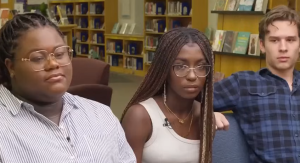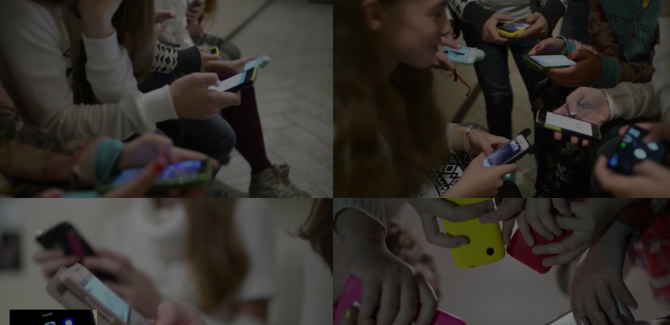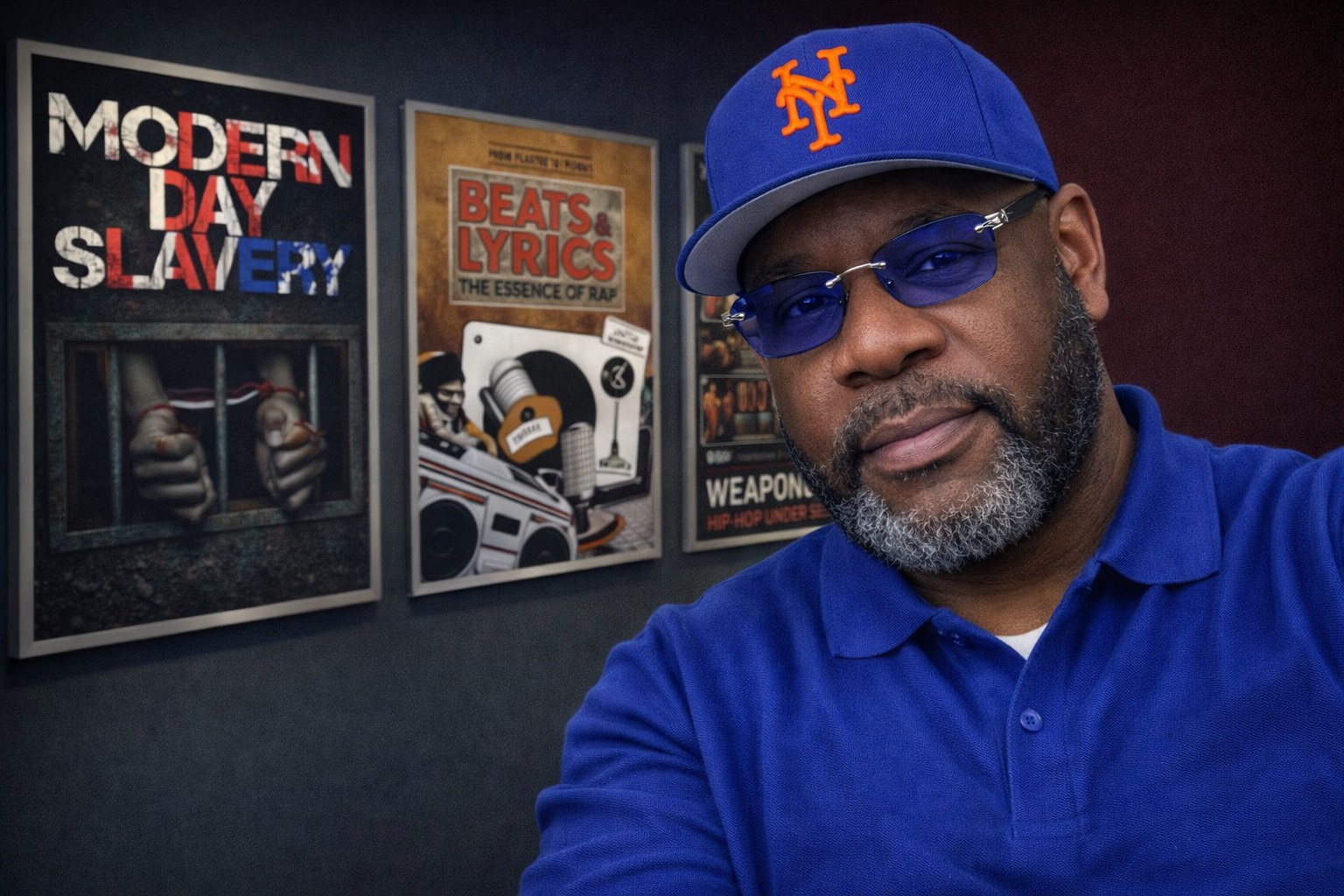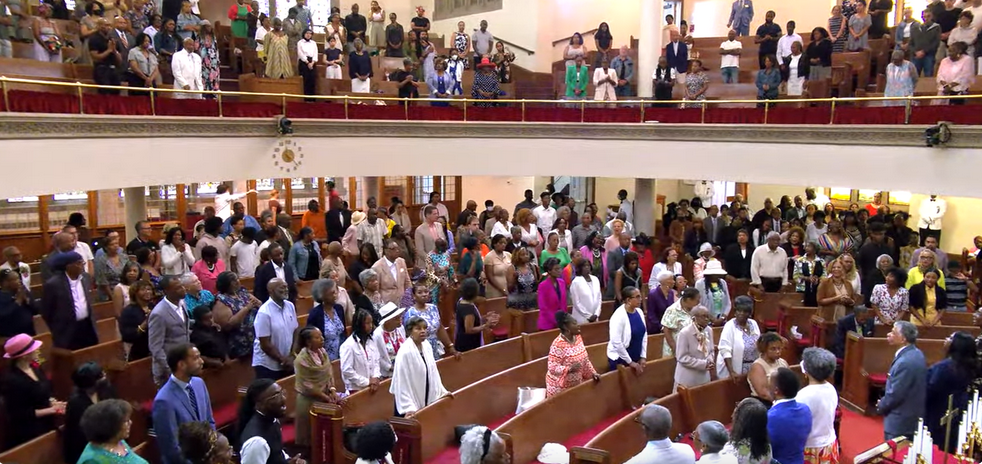By Office of Council Member Nantasha Williams
Photos: Video\YouTube Screenshots\Facebook
New York, NY — In an ever-advancing technological era, the utilization of social media and the digital population is rapidly increasing, especially among our youth. As these platforms become more prevalent, so too do we become increasingly aware of the dangers they pose to our society’s mental well-being. The rise of the national mental health crisis among young people is alarming, and its correlation with social media engagement cannot be ignored.

Social media not only impacts mental health but also plays a significant role in influencing crime rates among the youth. In response to this pressing issue, Council Members Nantasha Williams, Althea Stevens, and Kevin Riley are spearheading initiatives to address the detrimental effects of both social media on youth mental health and on crime reduction. Their proposed legislation aims to delve into the root causes of this crisis and implement measures to mitigate its impact on our communities.
Council Member Althea Stevens has introduced legislation which mandates the city to assess the impact of social media on the mental health of young people. Research shows that social isolation and loneliness are risk factors for poor mental health, poor physical health, and predict earlier death from all causes. One 2019 study found that 12-to 15-year olds who spent more than three hours daily on social media were twice as likely to report poor mental health.
Additionally, 42% of high school students in 2021 reported feeling so sad or hopeless for at least two consecutive weeks in the previous year that they stopped engaging in their usual activities, an
increase from 26% in 2009. Depression and anxiety among young people doubled during the pandemic with Black children nearly two times more likely than their white peers to die by suicide.
“Social media has become an integral part of our daily lives, but we cannot ignore its detrimental effects on the mental well-being of our children and adolescents. Countless studies have shown a correlation between excessive social media usage and increased rates of anxiety, depression, and other mental health issues among young people,” Council Member Althea Stevens, Chair of the Committee on Children and Youth explains. “Our collaborative effort seeks to implement reasonable restrictions on social media usage for minors, aiming to mitigate these harmful effects and promote healthier online habits. It is imperative that we take proactive measures to safeguard the mental health of our youth and ensure that they have the tools and support they need to navigate the digital landscape safely.”
Mayor Eric Adams has already taken significant steps to address the detrimental effects of social media on youth mental health. The administration’s lawsuit against major social media platforms
such as Tiktok, Instagram, Facebook, Snapchat, and YouTube, serves as a landmark example of recognizing the severity of the issue. This legal action underscores a commitment to hold tech
giants accountable for their role in fueling the nationwide youth mental health crisis. The constant exposure to curated and often unrealistic representations on social media platforms contributes to feelings of inadequacy and low self-esteems among young people. The negative impact of social media on youth has been steadily increasing, suggesting that this is becoming a significantly critical issue.
Council Member Nantasha Williams is championing a bill which would require a comprehensive study and report on in-person altercations among youth and their associated activity on online platforms. By understanding the link between social media engagement and real-world conflicts, this legislation aims to inform targeted interventions to prevent violence and promote safer
communities.

“I am deeply committed to ensuring the safety and well-being of our youth,” says Council Member Nantasha Williams, Chair of the Committee on Civil and Human Rights. “This bill is a crucial step in addressing the intersection between social media and real-world violence. By conducting a thorough study, we can gain valuable insights into the factors driving
conflicts among young people and develop effective strategies to address them.”
Recognizing that social media platforms often serve as catalysts for conflicts and can escalate disputes into potentially harmful situations is key. An analysis of the relationship between online interactions and in-person altercations may be able to identify patterns, risk factors, and potentially serve as an intervention to foster healthier social dynamics amongst the youth.
This understanding underscores the importance of Council Member Kevin Riley’s proposed bill, which focuses on enhancing safety measures.
“In the face of a pressing youth mental health crisis intertwined with the pervasive influence of social media on gun violence, Int. 82-2024 emerges as a beacon of proactive intervention. By establishing a three-digit gun violence intervention hotline, we strive to connect vulnerable communities with the vital support they need,” said Council Member Kevin C. Riley, Co-Chair of the Black, Latino and Asian Caucus. “A dedicated public awareness campaign, amplified through social media, becomes an essential tool in educating Black and brown communities and our youth. Empowering them with knowledge and resources is a pivotal step towards breaking the chains of violence, fostering resilience, and building a safer, more informed future for our city, exemplifying the transformative impact legislation can have on gun violence in our communities.”
By establishing a gun violence intervention hotline and conducting public awareness campaigns, this initiative aims to provide crucial assistance outside of the 911 system where police response is not warranted for support services to be dispatched to individuals grappling with mental health challenges and those affected by violence.
It’s imperative to recognize that the crime rate in our Black and Brown communities is skyrocketing, and social media platforms often exacerbate these issues by providing avenues for the dissemination of violence. Council Members Riley, Stevens, and Williams — or the “Hood Caucus” as they’ve named themselves, stand united in their commitment to addressing these challenges head-on and advocating for policies that promote the safety and well-being of all New Yorkers. The rise of the national mental health crisis among young people is alarming, and its correlation with social media engagement cannot be ignored. Social media not only impacts mental health but also plays a significant role in influencing crime rates among the youth.
As we move forward, it’s crucial that we continue to prioritize the safety and well-being of our youth. By addressing the negative influence of social media and implementing targeted interventions, we can create a healthier environment for our communities to thrive in. Through collaboration and proactive measures, we can work towards building a safer and more resilient future for all New Yorkers.

For more information, please contact the following…
Ayanna Camara, Public Affairs Specialist, Office of Council Member Nantasha Williams [email protected]
Jahtah Brown, Director of Communications and Legislation, Office of Council Member Althea Stevens [email protected]
Amanda Medina, Director of Communications and Social Media, Office of Council Member Kevin C. Riley [email protected]






